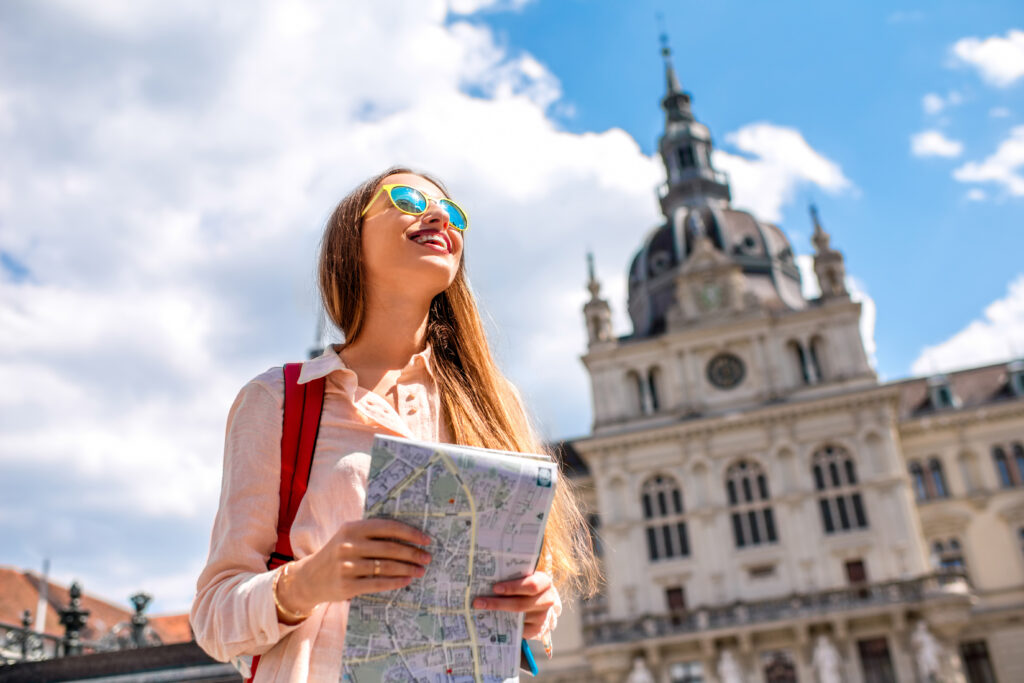
Travelling alone as a woman can be a real challenge! Between the fear of solitude and the fear for your safety, it can even be a source of anxiety. And yet, traveling alone allows you to enjoy every moment of your trip, to do as you please without depending on anyone else, and to make unforgettable encounters, so it would be silly not to!
1. Find places to meet other travellers
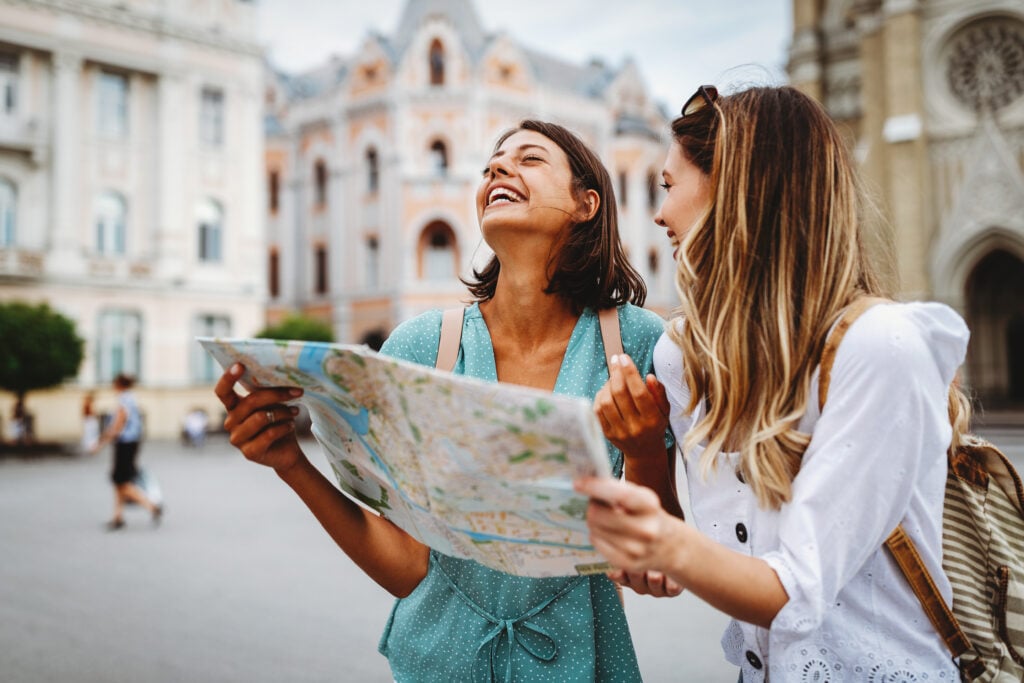
Travelling alone as a woman encourages us to be much more open, and to meet new people, who often turn out to be unforgettable. To give yourself the best possible chance of success, you need to make sure you frequent places where you can meet other travellers.
There are many ways of doing this:
- Take a tour organized by tour operators
- Takepart in a guided tour, such as a free walking tour, or a tipped city tour
- Participate intraveler events, such as restaurant or bar tours
But the best option for meeting new people when traveling alone as a woman is undoubtedly hostels. These accommodations are generally designed to provoke encounters! They organize various events, offer board games, have a lounge or garden where you can spend time with other travelers... And most of them have dormitories, but also private rooms, if you're not comfortable sharing your room.
2. Sleeping in women-only dorms
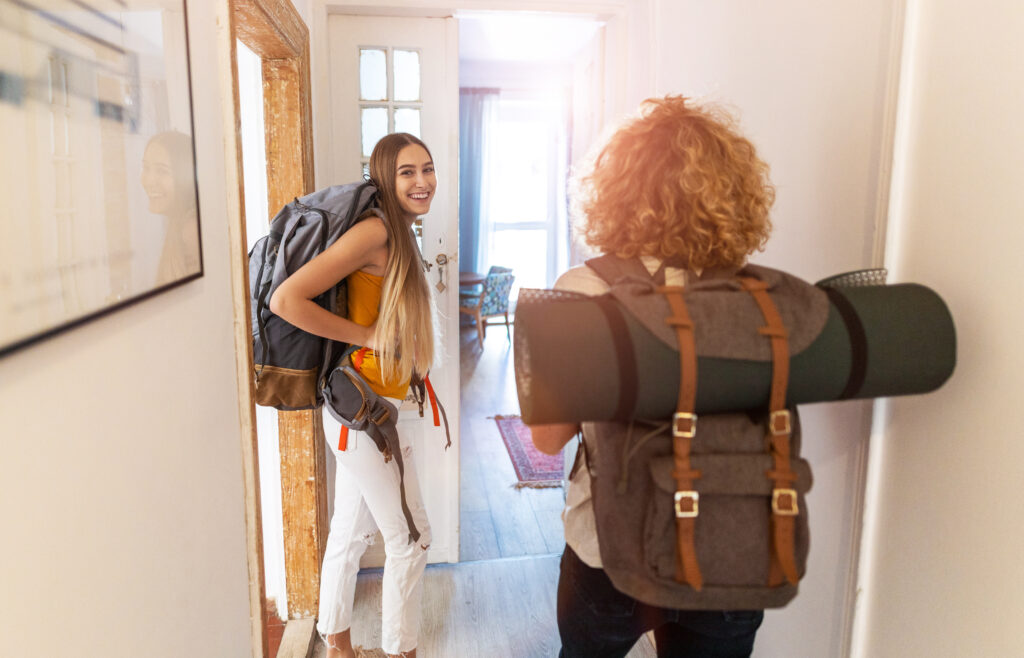
If you want to make even more connections with other travelers in a hostel, and save money at the same time, you can opt for dormitories: shared rooms with more or fewer beds. Most hostels offer all-female dormitories for female travelers. This can greatly ease your worries when traveling alone as a woman: no risk of sleeping with an unknown man in your room!
3. Choosing the right destination to travel alone as a woman
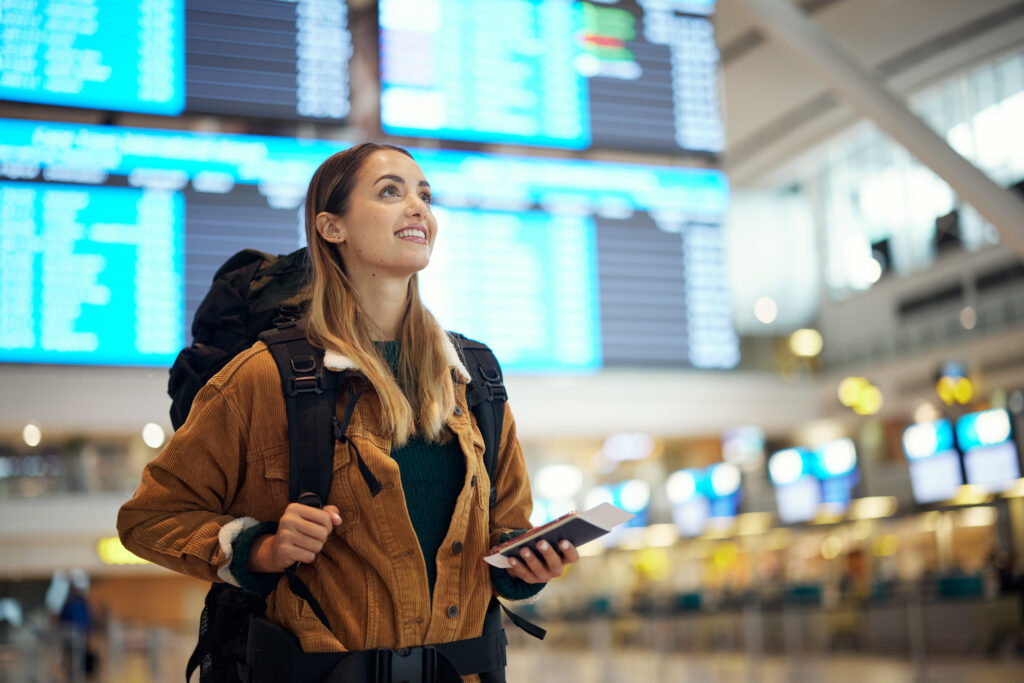
The status of women is not the same in all destinations around the world. Some destinations are ideal for single women, offering greater safety and more advanced women's rights. On the whole, in all parts of the world, whether near or far, there are destinations where you can travel alone as a woman. Just don't forget to find out all you need to know beforehand:
- On France Diplomatie, the website of the French Ministry of Europe and Foreign Affairs,
- On travel blogs,
- On forums or Facebook groups dedicated to this destination, where travelers and expatriates can answer your specific questions,
- From female travelers you know.
Where to travel alone for the first time?
Here's a selection of destinations renowned for the safety they offer solo travellers:
- Costa Rica : the country nicknamed "the Switzerland of Latin America" offers good security and progressive politics.
- Australia: this backpacker 's paradise is the ideal place to travel alone as a woman and meet new people.
- Germany: this European destination offers an often overlooked, yet very rich heritage, and remains perfectly safe.
- Iceland: this country is considered a world model in terms of equality between men and women.
- New Zealand: magnificent landscapes await you, with a particularly low crime rate!
- Japan: the country takes great care to ensure the safety of women, for example with subway cars reserved for them.
- Switzerland: considered the safest country in Europe!
- Slovenia: with its magnificent Alpine scenery, Slovenians are among the Europeans least worried about their safety!
Where to travel alone in France?
In France too, without having to go very far, there are some destinations that offer a change of scenery and excellent safety conditions for women:
- Brittany
- Franche-Comté
- Corsica
- Camargue
- Auvergne
- Ardèche
4. Choosing the right neighborhoods for your destination

Once you've chosen your destination, it's a good idea to find out as much as you can about it. If a city offers good safety conditions, this is not necessarily the case for all its neighborhoods. Just as a " safe " country will often have a few cities to avoid. We use the various traveler networks, word-of-mouth recommendations and government announcements to identify areas that should be avoided because they are less safe.
5. Communicating your program to friends and family

Be sure to tell your friends and family the details of your trip, including where you'll be staying and how you'll be getting around. In the event of a problem, or if they don't hear from you for some time, this will enable them to direct their enquiries, and to contact the establishment, whether it's a hotel or a youth hostel, to ask if you're still there. Don't forget to inform them of any program changes during your trip.
6. Make sure you have a good Internet connection

Before booking accommodation, make sure it has a good wifi connection. Similarly, check whether your mobile operator offers a connection in the destination. If it doesn't, find out about local telephone packages, especially prepaid SIM cards. Having an Internet connection and a phone plan at all times can get you out of bad situations. For example, if you need to call a cab home, check your itinerary with a GPS, book last-minute accommodation... In an emergency, you can even make a phone call to someone close to you. Note that if you're traveling in Europe, roaming charges no longer exist since 2017, so you won't need, with a European package, to take a SIM card.
7. Take out travel insurance

Taking out travel insurance can really get you out of some very complicated situations. Even when you're young, you're never safe from a serious virus that requires a consultation, an injury (especially if you're planning sporting activities), a toothache or some other health problem. However, in some countries, the cost of health care, whether for consultations with a health care professional or for treatment, can be particularly high. That's why it's a good idea to take out health insurance before traveling alone as a woman. Some providers offer packages specially designed for travelers.
8. Declare your trip on Ariane
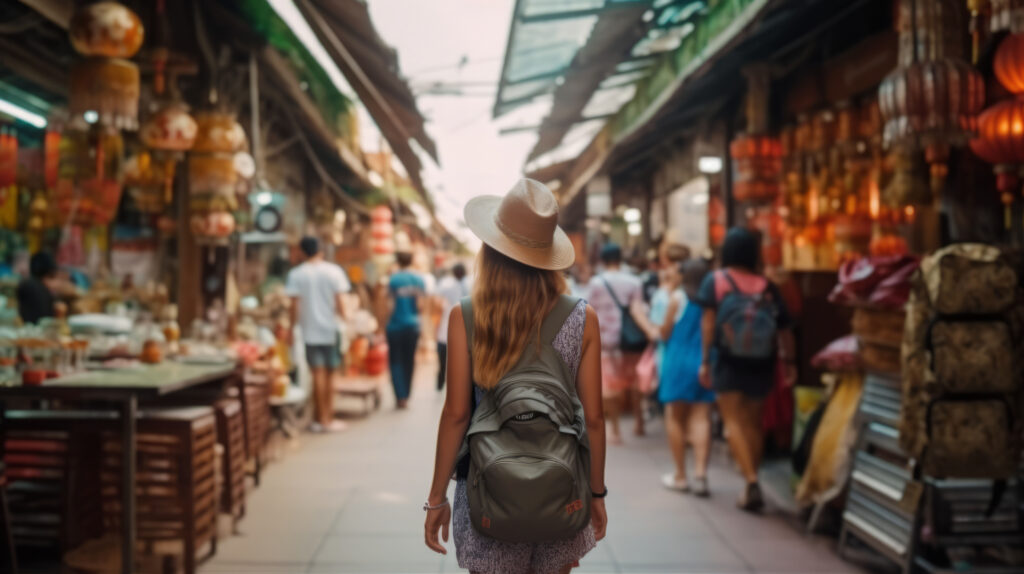
Ariane is the name of the website set up by the French Ministry of Foreign Affairs and International Development (MAEDI), to register French citizens traveling. It enables French citizens to declare trips of less than 6 months. For trips of more than 6 months, you will need to register with the "Registre des Français à l'étranger".
In either case, this will enable the French government to ensure your safety. In the event of a crisis in your destination (natural disaster, terrorist attack, war, epidemic, etc.), the government will be able to locate you, contact you by e-mail or SMS, and offer you solutions such as repatriation if necessary. What's more, when you register, you'll be asked to provide, among other information, a contact person in the event of an emergency - an extra precautionary measure when traveling alone as a woman.
9. Being equipped to travel alone as a woman
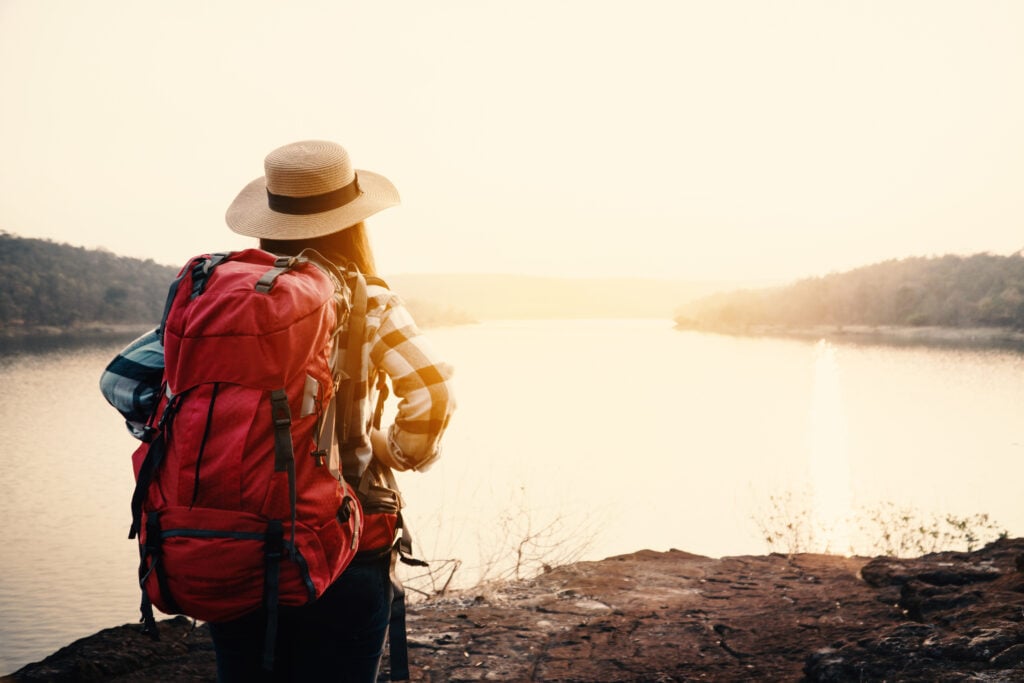
There are several tools that can make traveling alone easier when you're a woman. None of them are indispensable, but they can all prove useful, depending on your travel conditions:
- A padlock, useful for locking your suitcase or locker, if you're sleeping in a dormitory,
- A portable lock, for locking any door,
- A portable battery, so you can use your cell phone in an emergency,
- A first-aid kit.
10. Do not wear ostentatious objects
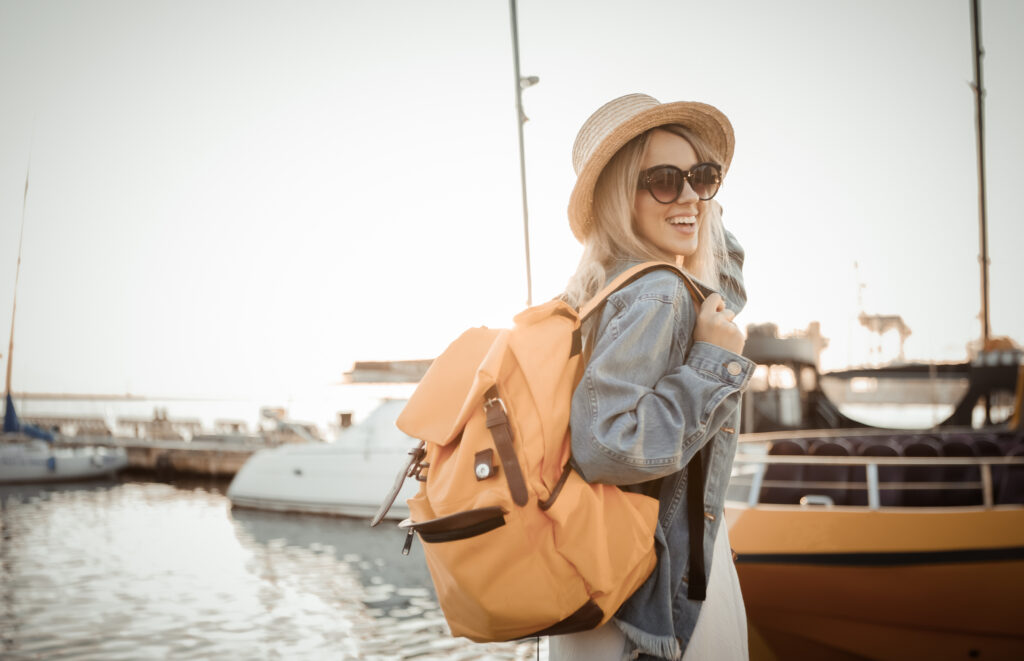
Especially in developing countries, wearing ostentatious objects can make you an easy target. Flashy jewelry, the latest smartphone sticking out of your pocket and brand-name handbags are all valuable accessories that can be a temptation for the wrong people. So remember not to wear ostentatious items in public places. In places where robberies are frequent, it can be useful to carry a low-end phone and change your SIM card when you go out in risky places. You'll need to keep your smartphone in your accommodation, in a locked safe or locker. Similarly, to guard against loss or theft, remember to print out all your identity papers, as well as hotel and transport reservations.


